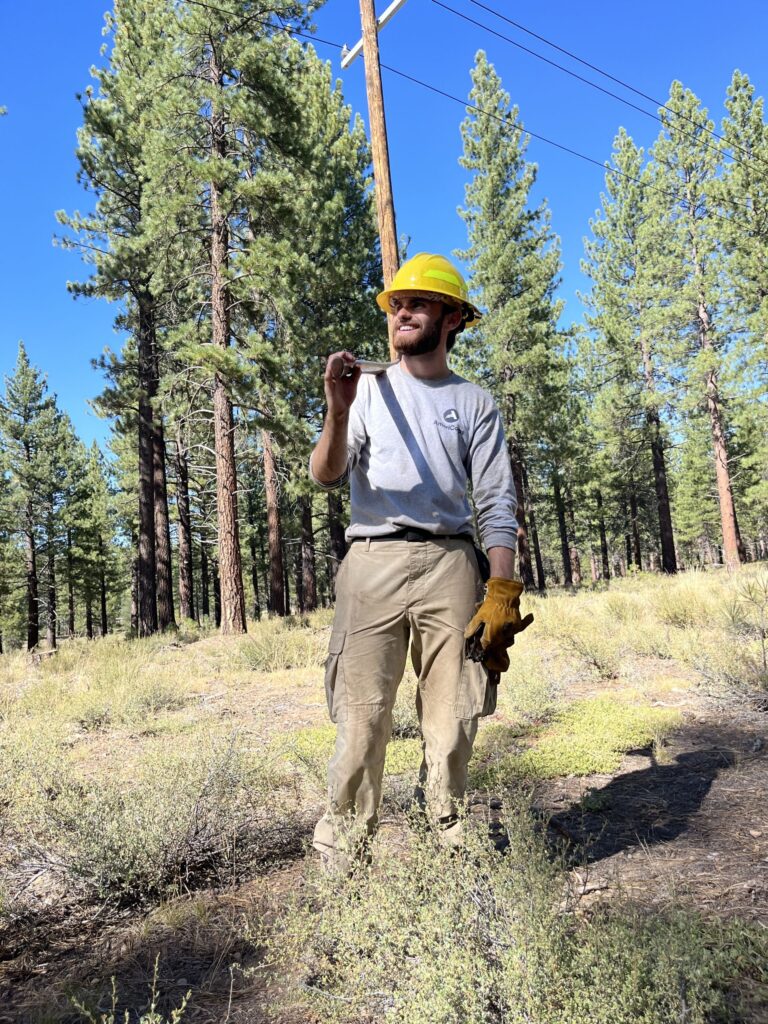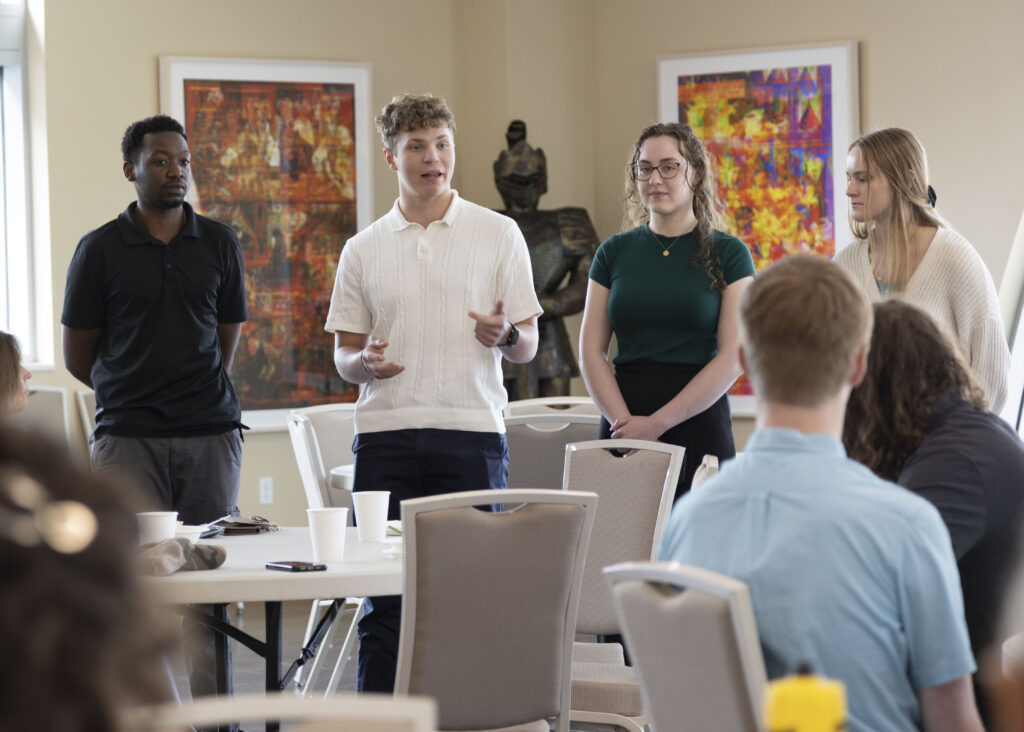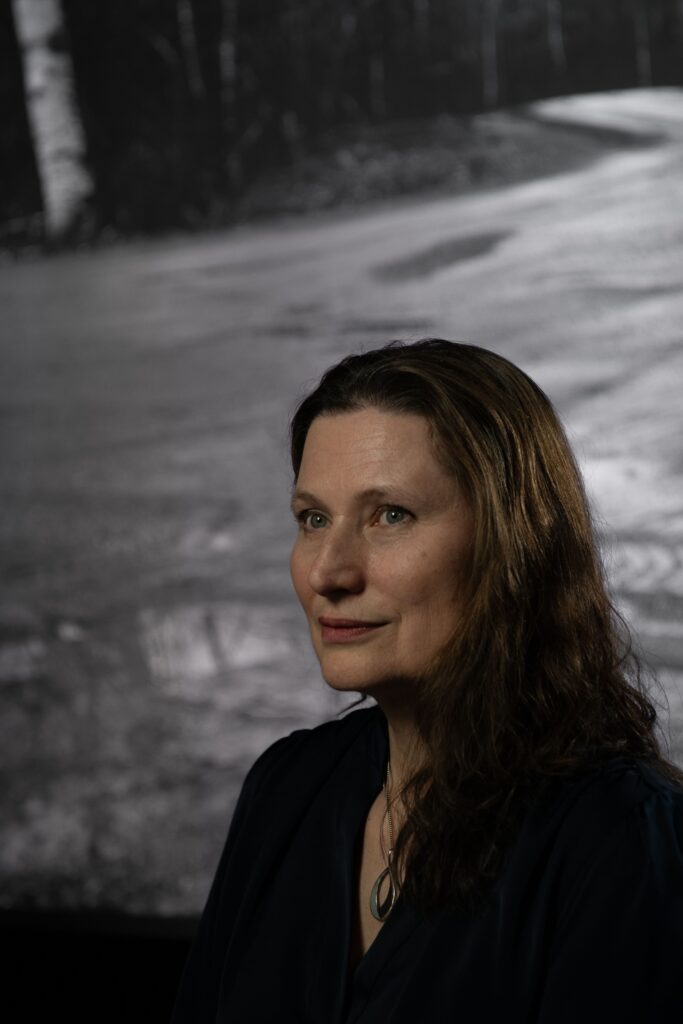Internships, job guidance still vibrant in pandemic
Many partner sites adapt to virtual experiences as Career Education Center keeps opportunities, careers moving forward
For colleges as for individuals, long-term relationships can offer critical sustenance through hard times.
So it has been professionally for Ingrid Peterson, veteran director of the Saint Michael’s Career Education Center (CEC), who, since arriving at Saint Michael’s in 1994, has carefully cultivated fruitful and longstanding internship opportunities with businesses in greater Burlington and beyond to benefit students wanting practical on-the-job experiences or career guidance.

Ingrid Peterson
“I think that our close connections with our community partners, our employers, in this area in particular, are really strong — we make the process fairly easy for employers because we don’t ask a lot of them — the big thing is that they provide a learning experience for our students and supervise them so they get feedback,” Peterson said. “So I think those close connections and longstanding relationships with them really help when you get into a situation like the pandemic; you can really count on them to help our students by continuing to provide internships.”
When the global pandemic sent Saint Michael’s and most U.S. college students home early this past March, Peterson and her CEC colleagues, Laura Neville and Tim Birmingham, were concerned about what might happen to those students and businesses paired for internships — so they wasted no time adapting to assure that such opportunities and relationships continued, at least in some form.
“We went completely virtual starting in March, but we did figure out ways for them to do it,” Peterson said. “In some cases the employers let them complete their internship hours virtually in what remained of the spring semester, while in other cases, we asked the faculty members who might be supervising them to come up with an alternative project that might equate with those hours.”
Highlights of the Career Education Center’s recent work include moving from in-person delivery to 100 percent remote delivery in 10 days once students left campus, and participating in or providing more than 20 webinars in two months to provide the best information on the employment market, Peterson reported to Trustees recently.
Peterson broke down the numbers for Trustees to demonstrate more concretely what her office has managed to sustain, even given inevitable COVID-related drop-offs in some areas by adapting to the new pandemic realities, with a few numbers even increasing:
She has logged 182 student/alumni appointments for her office this year so far vs. 118 last year; also, they have made 12 classroom presentations/workshops with over 120 students (either online or in-person) vs. 22 with 350 students last year; 20 students completed summer internships for academic credit, compared with 51 last year; and, 20 students completed fall 2020 internships for academic credit, compared with 14 last year.
Peterson said, however, that those numbers do not include the many Saint Michael’s students doing student teaching through the Education Department or participating in Psychology Department practicums, since those are not directed through the CEC offices. She said a large number of the CEC-connected internships are in business administration/accounting or media studies, journalism and digital arts, but many also are in sciences or politics, along with majors from environmental studies, economics, sociology, English and others.
“I would say our numbers are down for virtual appointments for this new semester, though we’ve seen a recent resurgence,” Peterson said, noting that “even in normal times, it’s pretty cyclical.” She speculated that September numbers were noticeably down since in a non-pandemic year, “a lot of students who had been home all summer then get back to campus with a fresh push from home to get started right on career preparation … but I think Zoom fatigue is a real thing for students this year, with so much online already, so they’re not necessarily thinking of getting help from us online as well.”
She said typical meetings for her team, whether virtual or in-person, cover the same topical territory, ranging from cover letter advice, interviewing tips or mock interviews, graduate school questions, or networking leads about connecting with alumni
“Alumni are pretty consistent overall and most of them are still there ready to help,” she said. However, a surprise came when her office offered last spring to help St. Mike’s alumni concerned about losing jobs in the pandemic and expected a rush of inquiries — “but we really didn’t see that, even though we did quite a bit of outreach to alumni — more than we typically do.” Still, she and her colleagues remain willing to offer such assistance to alumni who seek it even now, given that the pandemic is, sadly, far from over.
One multi-internship cancellation that brought this year’s numbers down was the fact that 10 to 12 students who normally would travel to Asia for prestigious Freeman Foundation internships in Hong Kong or Singapore could not go this summer. In those cases and elsewhere closer to home, she said, work sites realized “they couldn’t adjust to creating a virtual internships since they didn’t have the band width to supervise somebody with the pandemic spreading everything so thin.”
She said while many internship relationships for her office are with sites in the greater Burlington area or in Vermont, many typically also take place in a student’s home area when they might have connections or the means to make it work. For example, “In 2019 I had someone majoring in political science and economics who interned in Saudi Arabia through a family connection; and I’ve had a few do virtual ones even before the pandemic, when it involved mostly online or social media type work.” Credits for internships are based on the number of hours the students complete for the site, with the most typical being worth four credits, though some students do two-credit experiences.
For many years, and continuing this year, Peterson has taught an internship course to accompany the on-site experience, repeated for the fall, spring and summer terms. “It’s just a general class that students can take, and for their grade, 60 percent comes from academic work in the class and 40 percent of grade comes from an evaluation thata site supervisor completes,” she said. Other faculty teaching the internship course are Allison Cleary of media studies, journalism and digital arts in the fall, and Paul Olsen of business administration/accounting in spring, with Olsen and Peterson both offering it in the summer term.
As with many courses this year, students are choosing both in-person, virtual and hybrid options for their internship experiences. “There are students now who are interning in-person, on-site, and that was even true over the summer, while others are doing it all online,” she said.
Another strong resource for St. Mike’s students mapping careers is that the College’s Alumni and Parent Relations Office and Alumni Board each year offers a Career Symposium that nicely complements the CEC’s work, Peterson said. This year, that will move to a virtual event on Zoom the evenings of Monday, November 9 through Thursday, November 12, but still featuring a host of alumni panels talking about possible career paths in a wide variety of businesses and fields. “Another thing that we did with the pandemic was a series of webinars with alumni talking about their professional and pandemic experiences,” Peterson said. “We interviewed them, then edited the interviews, and they are posted on the College website or YouTube channel – we have three that are posted so far.”
She said the job market is “not great for anybody right now” with businesses moving forward very cautiously, given so many unknowns on the public health and political fronts. “They are holding off making decisions until they know what the climate is going to look like, figuring out where they are going to be in a year or six months, so that impacts recruiting and hiring.”
But even this week, she heard of a 2020 graduate who got a job, and information still filters in steadily about opportunities and successes. For example, she said, during this year’s normally very busy accounting recruiting season through her office, she discovered longtime partners “are still hiring, but instead of hiring five or six, they may only be hiring two or three.”
“We help students realize it is probably going to take longer and be harder,” Peterson said, “but the opportunities are still out there.”






